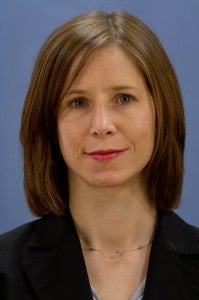This commentary was originally posted on Duke Energy’s Shedding A Light Blog.
 In late January, I had the great pleasure of joining a group of Charlotte, N.C. city employees at an “Energy Champions” training hosted by Duke Energy and Charlotte Center City Partners. The city workers were bursting with enthusiasm, inventing creative ideas on the spot about how to motivate people to reduce energy use in the workplace. Many involved “friendly” competitions, around things like turning off monitors and lights: I for one would not want to be the recipient of the “Dim Bulb Award.”
In late January, I had the great pleasure of joining a group of Charlotte, N.C. city employees at an “Energy Champions” training hosted by Duke Energy and Charlotte Center City Partners. The city workers were bursting with enthusiasm, inventing creative ideas on the spot about how to motivate people to reduce energy use in the workplace. Many involved “friendly” competitions, around things like turning off monitors and lights: I for one would not want to be the recipient of the “Dim Bulb Award.”
Participants were excited to help Charlotte shine as a leader in innovation and to be part of Envision Charlotte, an initiative to make their city the most sustainable urban core in the country. Environmental Defense Fund (EDF) is pleased to be part of this innovative public-private partnership, along with Duke Energy, Charlotte Center City Partners, Bank of America and others.
One goal of Envision Charlotte is to reduce energy use in more than 60 large commercial and government buildings in Uptown Charlotte by 20 percent within a five-year timeframe. Why target buildings? Because buildings account for more than 30 percent of total energy use, and 65 percent of electricity consumption. Reducing energy use in buildings, especially the large buildings participating in Envision Charlotte (more than 10,000 square feet each), can have a huge impact and presents an enormous opportunity to cut costs and greenhouse gas emissions.
One of the ways Envision Charlotte will accomplish this goal is through Duke’s Smart Energy Now program. Duke and its partners Cisco Systems and Verizon Wireless have already installed smart meters and information kiosks in participating buildings. These displays show in real-time how much energy is being used in the city’s center every day, and provide tips on how to reduce that use. Information is also available through a secure portal, accessible to building owners and managers, which shows how much energy each individual building is using. This information will help employees, building owners and facilities managers make smart decisions about how they use energy every day of the week.
As a smart grid expert, I’m particularly interested to see what role smart technologies will play in making these buildings more efficient, and in shifting demand away from times of peak electricity use, when energy is most expensive and most polluting, and (ideally) to times when renewable energy is available on the grid.
Duke and its partners will host more Energy Champions trainings over the next few months, targeted specifically to different segments of building users: executives, workers and facilities managers. There is already palpable excitement in the city with the Democratic National Convention coming in the fall, which will place Charlotte in national, and even international, spotlights. Only these spotlights will be energy efficient. And please turn them off when you’re done.









